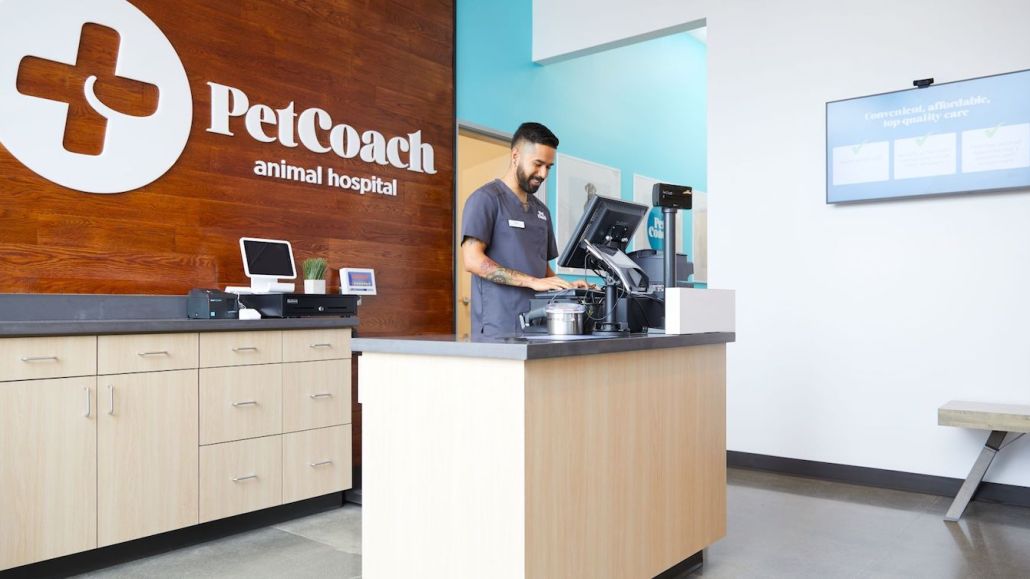One month in, Petco has 2,000 subscribers to its pet advice service

One of the ways Petco is working to Amazon-proof its business is through PetCoach, a monthly subscription service that connects pet owners to vets for in-store services and online access for individualized support.
The pet-goods retailer first acquired the online service and mobile app in April 2017, but in mid-July 2018, opened a physical store for the service in San Marcos. Customers can come in for individual training, grooming or vet services or pay $9 a month to receive free veterinary visits, discounts on merchandise and access to online experts. Petco set a realistic goal for the combined store and online service: 1,000 subscribers by the end of 2018, according to Tariq Hassan, who was appointed CMO for Petco, the same month as the store opened.
A month and a half later, and the company has already surpassed that. The PetCoach store has already brought in 2,000 subscribers and the company has boosted its goal to 4,000 subscribers by the end of the year, Hassan told Digiday after speaking on a panel during Advertising Week in New York City.
“It’s a learning platform for us to understand how pet parents want to engage with a partner, not just a retailer,” said Hassan. Right now, the only PetCoach store is in San Marcus and has three vets on staff, but Hassan said Petco has plans to build out and test more locations. The online site receives 2.5 million visitors a month and has 100 vets available online.
For Petco, which is flanked with not only competition from Amazon, but online dog goods subscription services BarkBox and competitor PetSmart’s own online offering Chewy, PetCoach is a way for the retailer to lean in to an offering that customers cannot find online. And, as many direct-to-consumer companies have seen, subscription services allow for easy gathering of essential first-party data, thanks to email addresses when people sign up. It’s also a way to generate loyalty with customers and keep them coming back.
“Shoppers are less likely to shift retailers once they have the convenience of regular replenishment,” said Alice Fournier, vp of e-commerce and digital at Kantar Retail. “And it helps absorb the acquisition cost over time.”
The subscription service also brings in some incremental revenue, although hardly a windfall. Usually vets say people should bring their pet to a vet once a year, depending on their life stage. Brock Weatherup, evp of strategic innovation and digital experience at Petco, told CNBC that the company was also considering a yearly membership option.
The PetCoach membership is not Petco’s only subscription service selling in-store. In November 2017, Petco acquired $29-a-month subscription box service PupBox, which brings monthly toys, treats and advice aimed at people with growing puppies.
Hassan also said Petco plans on bringing more specialty products into PetCoach stores. Hassan said the number one selling products so far at the PetCoach store are from JustFoodForDogs, which Petco began to partner with earlier this year, and brings in fresh, human-grade food to the store. The PetCoach store is smaller than a typical Petco with two-thirds of the 12,000 ft. space dedicated to vet, training and grooming services, and the other third dedicated to Petco products.
More in Marketing

YouTube’s upmarket TV push still runs on mid-funnel DNA
YouTube is balancing wanting to be premium TV, the short-form powerhouse and a creator economy engine all at once.

Digiday ranks the best and worst Super Bowl 2026 ads
Now that the dust has settled, it’s time to reflect on the best and worst commercials from Super Bowl 2026.

In the age of AI content, The Super Bowl felt old-fashioned
The Super Bowl is one of the last places where brands are reminded that cultural likeness is easy but shared experience is earned.








